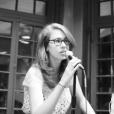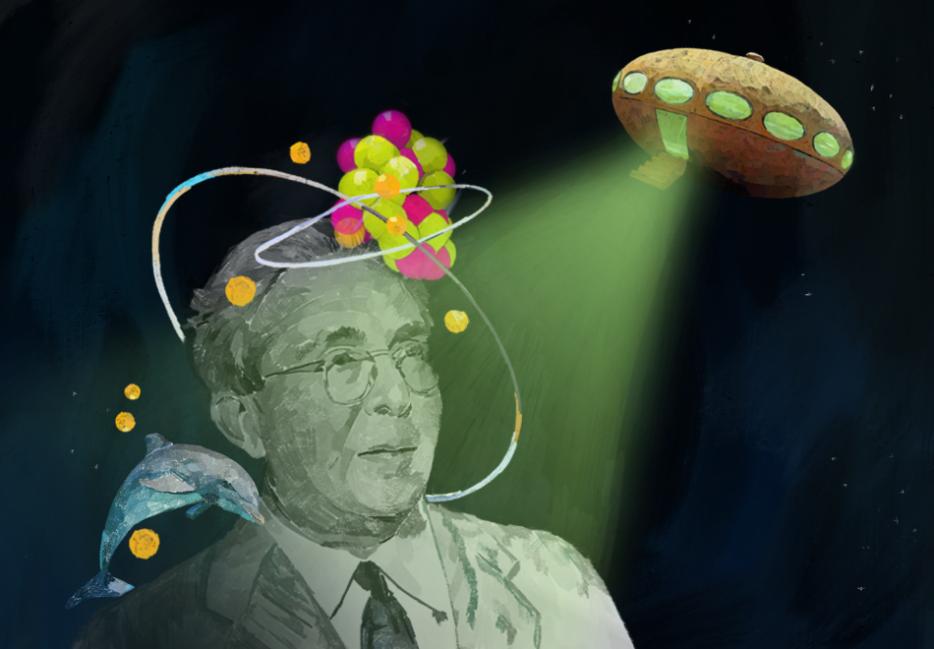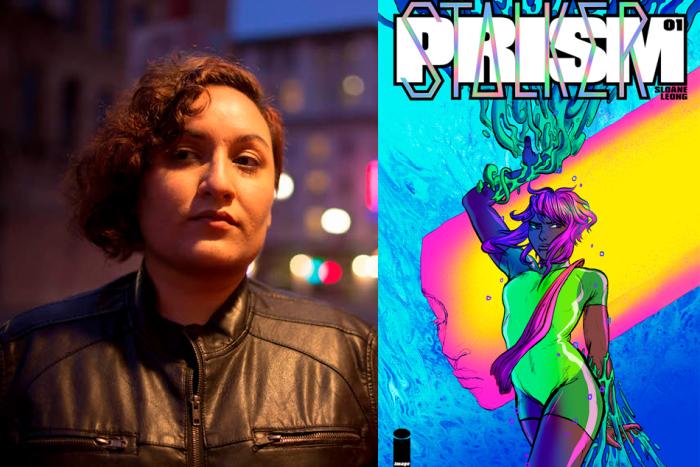By all accounts, Leo Szilard loved being in the hospital. In 1960, he was sixty-two years old and dying of bladder cancer, or so it seemed at the time. Although he had liked his life, dying did have its privileges. In room 812 at Memorial, he could hold appointments from bed, like a child king; he had prompt meals, daily pampering; hourly respite from loneliness. And, though he had gone without a permanent address for nearly a decade, he now had a constant influx of visitors: the nurses who indulged his banter and let him take his own temperature; the doctors who tolerated the proffering of his medical opinions. Cancer, miraculously, had given Leo a social life.
It had also, paradoxically, given him time. Propped up on his deathbed with his mind at leisure, Leo could cultivate new hobbies, like researching poison. “How terrible it is that you can’t walk into a drugstore and buy something to kill yourself without pain,” he lamented to his colleague, the physicist and Nobel Laureate Hans Bethe. Barbiturates were good, but cyanide was better, if you could curb the choking sensation. He began a patent for a so-called “suicide kit”: a hand pump that could diffuse a painless dilution of cyanide fumes, making dying as easy as breathing.
Around that time—in the hours he wasn’t napping, or amusing nurses, or trying to covertly direct his own radiation treatment—he began writing a book.
That book, a collection of eight addled, antic parables about nuclear war called The Voice of the Dolphins, would go on to be hailed by at least one of Leo’s contemporaries as a “science fiction classic.” The cyanide pump, on the other hand, was a morbid failure. So, in his way, was Leo.
Leo is best remembered, when he’s remembered at all, for his contributions to a different kind of deadly device. In 1939, he sent a famous letter to President Franklin D. Roosevelt. “In the course of the last four months,” he wrote, “it has become possible to set up a nuclear chain reaction in a large mass of uranium.” The letter, cosigned by Leo’s old friend Einstein, was the beginning of the Manhattan Project.
*
Born in Budapest in 1898, Leo was a mere nerd long before he was ever a maker of bombs: quiet, inward, exceedingly mockable. He had protruding ears, a high forehead, and a collection of whimsical hats. His best (only?) friend was his kid brother, Bela, with whom he spent hours building radios and reading science fiction. As a boy, he discovered the “scientific romances” of H.G. Wells who, in a novel titled The World Set Free, likened atomic power to the discovery of fire, which could “[raise] man from brute.” Wells’s furious utopianism struck a chord with Leo. As a young man, he would go on to start the Hungarian Association for Socialist Students, which proved a gutsy move for a Jewish kid in a collapsing country. In the first of many historical ironies, he moved to Germany, where anti-Semitism seemed comparatively mild.
Leo’s plan was to study engineering at the prestigious Friedrich Wilhelm University in Berlin, but engineering proved boring—“the routine application of established knowledge,” in his appraisal. At Willhelm, he attended lectures by Nobel physicist Max Planck, who sparked his interest in theoretical physics, and befriended Albert Einstein by walking him home from school. But even with Einstein’s guidance, Leo struggled to secure a job in his chosen discipline: undoubtedly brilliant, he was also, in the words of his friend Eugene Wigner, “an ass in some respects,” bored by teaching and lab work, distracted by his own quixotic ideas. Tellingly, he put the word “job” in scare quotes. By the end of the decade, he was broke, and Berlin was in crisis. On January 30th, 1933, Hitler was named Chancellor of Germany. A few months later, once Einstein secured him a last-ditch fellowship, Leo moved to London.
It was in London, on a street corner in Imperial Park, that Leo had an epiphany, motivated, characteristically, by irritation. He had just read an editorial by Ernest Rutherford declaring the Wellsian dream of atomic power a theoretical impossibility. It occurred to Leo that a nuclear chain reaction could be precipitated by the neutrons, then a recent discovery, in a “critical mass” of uranium. Vindicated, Leo filed his first patent. Five years later, he fled Nazi-occupied Europe for the United States.
In 1942, under the auspices of Roosevelt, Leo began work as Chief Physicist at the University of Chicago’s Metallurgical Lab, where the Manhattan Project was first conceived. He collaborated with Enrico Fermi to create Chicago-1, the world’s first nuclear reactor, partially devised from Leo’s 1934 patent. Unsurprisingly, Leo was a frustrating colleague from the very beginning—a “peculiar man,” in the words of Fermi, with too many ideas and too few social graces, who “seemed to enjoy startling people.” Chiefly, he enjoyed startling “brass hats,” or the bureaucrats and government officials with whom he would be in conflict for most of his adult life.
As the Manhattan Project continued, the Met Lab came under the control of Lieutenant General Leslie R. Groves, the director of the Army Corps of Engineers and Leo’s eventual nemesis in life and death. Groves was a career soldier with a puny mustache, a pugilistic face, and a hearty American distrust of intellectuals; Leo was a Hungarian with a heavy accent, a jocular contempt for military authority, and an ecstatic, evangelizing confidence in his own ideas. The two were instant enemies, bound by a beautifully counterpoised hatred.
From the first, Leo bristled at the presence of military engineers, whom he believed capable of little more than “putting up bridges,” and resented Groves in particular as a philistine intrusion on the sacrosanct domain of science. He was also, to Groves’s consternation, immediately dismissive of security protocols, which he thought stymied collaboration among physicists. After Groves refused to support one of Leo’s initiatives—his plans for a bismuth-cooled reactor—Leo’s fraught relationship with the Army Corps deteriorated even further. “If you don’t get rid of these engineers,” he said to Arthur Compton, the Met Lab’s research director, “I’m going to quit.” Groves proposed another solution: that Leo be impounded as an “enemy alien” for the duration of the war.
Rather than firing or imprisoning Leo, which would trigger a wave of resignations from his colleagues, Compton removed him from daily operations at Met Lab and assigned him a nominal advisory role. But if Leo had less of a say in the making of the bomb, he now had more time on his hands to consider its destiny.
Leo had imagined that “liberating the atom,” as Wells described it in The World Set Free, would liberate the world from Nazis. But as the war continued, it became clear that the bomb would function more profoundly as a deterrent to the Soviet Union than as the death knell for the Third Reich. In 1945, Leo decided once again to draft a memo to President Roosevelt, titled “Atomic Bombs and the Postwar Position of the United States,” which cautioned that military use of the bomb could trigger “a preventative war with the Soviet Union.” Roosevelt died before Einstein, again volunteering as intermediary, could deliver it.
Leo had entered the Manhattan Project under the auspices of Roosevelt and would leave it under the stewardship of Harry Truman and an administration of dogmatic Cold Warriors. In the spring 1945, Leo finagled his way into a clandestine meeting with Jimmy Byrnes, soon to be named Truman’s Secretary of State, to present him with a version of the memorandum he had intended for Roosevelt. Although the memo was signed by a number of Leo’s Manhattan Project colleagues, Byrnes refused to pass it on to Truman. While the war would soon be over, Byrnes explained to Leo, the use of the bomb on Japan would make Russia more “manageable.” Before the war had even concluded, the bomb had already been conscripted into the fight against Communism.
As August 1945 approached, Leo made one last attempt to stop the bomb: Along with Arthur Compton, Edward Teller, Eugene Rabinowitch, and a number of other prominent scientists, Leo helped draft the secret petition that would come to be known as the Franck Report, cautioning Washington about the likelihood of a postwar arms race should the bomb be deployed on Japan. The petition marked the end of Leo’s career in nuclear physics. It was the last of his many attempts to spurn Groves and his ilk, for whom the military use of the bomb beckoned as a career capstone.
To Groves, Leo wasn’t simply a rival, or a nuisance, or even just an “enemy alien,” he was a “true villain,” “an inveterate troublemaker,” and “not a great scientist.” Most of all, he was a Jew. “I’m not prejudiced,” Groves told a reporter in 1957. “I don’t like certain Jews. I don’t like certain characteristics of theirs, but I’m not prejudiced … Take Wigner and Fermi—they’re not Jewish—they’re quiet, shy, modest, just interested in learning.”
Leo was keenly aware of the fact that his colleagues, too, had stymied his attempts to stop the bomb, most notably Oppenheimer himself, who told Leo repeatedly that scientists had no place in politics. Oppenheimer, Jewish though he was, had never stoked Groves’s racist ire the way that Leo had. “He can talk about anything,” Groves said admiringly, “except sports.” Regal in his despair on national television, it was Oppenheimer, not Leo, who emerged as the Manhattan Project’s high-profile penitent. He became, in the sobriquet of his biographer, the “American Prometheus,” while Leo—the Martian, the Jew, the frumpy, frantic foreigner—has been largely forgotten.
During the war, Leo never described himself as socialist or, for that matter, as a Jew. Instead, in a famous quip, he described himself as a Martian. Alien or not, he had always been a moony annoyance, bidden by odd, insistent habits. He didn’t marry until 1951, when he was fifty-three years old, and courted his wife, Trude, by mail over a period of decades—aware, perhaps, that he charmed in prose but chafed in person. Mostly left to his own devices, he seldom bothered with anything so terrestrial as labwork, or laundry, or living in houses. He felt most at home in hotel rooms, roosting anywhere with room service. Leo lived precariously, portably, with everything he owned—clothes, books, papers, patents—slopped into suitcases. His first real permanent address in America was in La Jolla, where he retired and where, in 1964, he died.
William Lanouette, in his biography of Leo, characterizes these habits as those of a late-in-life bachelor. But so, too, do they seem like the habits of a lifelong refugee—a European Jew exiled from Europe, and, eventually, as a physicist exiled from physics.
After the revelations of the Franck Report, Groves blacklisted him, writing menacing notes to physics departments around the country cautioning against his employment. Leo never worked in nuclear science again. Instead, he wrote about it. With the imprimatur of a former Manhattan Project scientist, Leo found he could publish more or less whatever and wherever he wanted: in The Bulletin of Atomic Sciences, The New Republic, Life. He had always been an easy, authoritative writer with a flair for argument and irony; now, instead of writing letters to the president, he wrote articles for the public, pleading the case for international arms control. Living on the periphery of America’s nuclear politics at the dawn of the atomic age, Leo found, to his chagrin, that he had hardly any influence but plenty of celebrity. Such was the dubious distinction of the man, in the words of Lanouette, “who did the most to create the bomb and the most to stop it. “
*
When The Voice of the Dolphins was published, Leo hadn’t worked in physics in over a decade. The title story, composed after his cancer diagnosis, was his attempt to craft nuclear policy from his hospital bed. Over seventy pages long, “The Voice of the Dolphins” takes place in the near future, and follows a cabal of messianic dolphins who take over the Vatican. Possessed of a frighteningly superior intelligence, the dolphins also demonstrate a preternatural understanding of nuclear warheads. To everyone’s relief, they crave only peace. They start a radio show, on which they predict the U.S.-Soviet nuclear crisis of the 1980s. They also resolve it, through a series of byzantine policy proposals. Then, under mysterious circumstances, they die, evoking either a political assassination or the death of Christ.
This is, for The Voice of the Dolphins, a happy ending. It’s easy to imagine the Leo of the 1960s dividing his days between writing fiction and envisioning his own funeral, grief-stricken under a fine rain of nuclear fallout. His book reads less like a classic of science fiction than an extended revenge fantasy—a Boschian portrait of what the world would look like without him. Every policy suggestion made by the dolphins had, as one reviewer noted, “been made at an earlier time by Leo Szilard himself,” in an article published in Life Magazine titled “How to Live with the Bomb—and Survive.” When Leo’s former colleagues responded to his article derisively—that is, the way they responded to all of his articles—he decided that, if they “couldn’t take it straight, they would get it as fiction.” He rewrote “How to Live with the Bomb,” point for point, as a short story, then added dolphins.
But the charge of aggressive self-plagiarism doesn’t fully capture the book’s peculiar blend of hack shamelessness and high moral purpose. It’s a divided, demented little book, riven by dueling desires for penance and self-promotion—as confused, perhaps, as Leo himself, torn between curing his cancer and committing suicide. In his book, as in his life, it’s hard to tell whether he wanted to save the world or revel in its ruin.
Leo was a man who could hardly tie his own shoes but could foresee the split atom while crossing the street; a man who could succeed in building a bomb but who failed to stop it. The Voice of the Dolphins is, perhaps, less a classic of science fiction than an aching inventory of its author’s failures. The title story, Leo wrote, “is not about the brilliance of dolphins, but about the stupidity of man.” In most of the stories, the surest sign of men’s stupidity is that all of them are dead.
*
Leo remained convinced, to the end of his life, that the nuclear threat wasn’t a scientific crisis but a political one—the singular result of war hawks like Byrnes and Groves who dismissed or demonized him. And as the Cold War mounted, Leo kept faith in his vision of a nuclear arsenal wrested from the hands of politicians, helmed instead by an enclave of scientific elites.
But, for all his scientific optimism, there are hardly any heroic scientists in his fiction. There are hardly any humans, in fact, and the ones who survive wish they hadn’t. In “The Mark Gable Foundation,” a man wakes up from a cryogenic freezer to discover that the humans of the future all wear dentures. In the millennia he slept through, science hasn’t solved the problem of the bomb. But it has, reassuringly, solved the problem of teeth, extracting them for “hygienic purposes.” Far from saving the world, science in Leo’s fiction is toothless and inept, piloting humans into a future they never wanted.
It’s space aliens, not scientists, who promise salvation in Leo’s fiction. Subverting the decade’s B-movie tropes, Leo’s aliens aren’t hostile invaders but melancholy intellectuals—cosmic outsiders who don’t want to blow up Earth but understand why it blew up in the first place. They’re not Communists, perhaps, but intergalactic fellow travelers; innocent of commerce, they appear to believe that the only thing crazier than nuclear war is capitalism itself. It’s the very unsubtlety of that symbolism that makes The Voice of the Dolphins such a ribald, risky marvel: Leo Szilard, enemy alien trailed by the FBI, wrote a widely-published book of fiction condemning the bomb and eulogizing Karl Marx.
In “Notes on Exterminism,” published in the New Left Review in 1980, the critic EF Thompson declared that the arms race was too crazy to admit a class analysis; the bomb was a political concern that subsumed all others. But, in his life as in his fiction, Leo rejected the idea that the atomic thread overrode questions of class and power. He understood, ever since that failed meeting with Byrnes, how thoroughly the bomb was embedded in forms of economic domination.
In the introduction to the 1992 edition of The Voice of the Dolphins, Barton J. Bernstein wrote that “My Trial as A War Criminal” marked Leo’s attempt, however conflicted, to echo Marx’s assertion that “history is written by the victors.” But, if there are no real war criminals in The Voice of the Dolphins, there are no winners, either. The book, ultimately, suggests that history—its weight, its wounds—is inherited by the losers. He understood that at stake in the bomb was more than one kind of extinction. Before the death of the species would come, inevitably, the extermination of difference. If his fiction offers any fragile grounds for hope, it is the image of the Martian—the socialist, the Jew, the bitter outsider—as the one who survives.
*
Leo recovered from his cancer diagnosis, either through the salubrious effects of imagining apocalypse or because he insisted on directing his own radiation therapy. He recovered in other ways, too: the success of The Voice of the Dolphins somehow allowed him to regain, for a brief time, his political credibility. People started opening his letters again, and sometimes they even answered. One of those people was Nikolai Kruschev, to whom Leo, with typical bravado, had sent an unsolicited manuscript of The Voice of the Dolphins’ title story. Kruschev was amused. For a time, they corresponded.
That correspondence scored Leo a few successes. It was at Leo’s encouragement that the first hotline between the White House and the Kremlin was established. More characteristically, Leo also managed to secure more vacation days for the scientists at the Atomic Energy Commission. But he will always be a figure regarded more highly for his failures than his successes. His thwarted attempts to stop the bomb had largely effaced his role in building it. That quirk of fate—that he could become one of the most famous failures in nuclear politics, and beloved for it—wasn’t lost on him.
Towards the end of his life, Leo reflected on his differences from Enrico Fermi, describing him, in a backhanded sort of way, “as a scientist pure and simple.” For Leo, that “position is unassailable because it is all of one piece….I doubt that [Fermi] ever understood that some people live in two worlds like I do. A world, and science is a part of this one, in which we have to predict what is going to happen, and another world in which [we] fight for what we want to happen. But how many people are able to understand that coexistence of these two separate worlds? I certainly would not understand it were it not for certain accidents in my education."
If this “separate world” was one born out of futility, it’s also one he perceived most clearly in his fiction. Thomas Carlyle once described poetry as “failed prophecy,” and the same could be said of science fiction—the genre that H.G. Wells once lamented as a “self-destructive art.” To write fiction like Wells’s or Leo’s is to write fiction that is often debunked by the very future it foretells. This is, perhaps, a good thing. What’s bad for the survival of science fiction is probably good for the survival of the species. Like Wells before him, Leo wrote to capture a collective nightmare. And we hope of nightmares what we seldom hope of novels: to forget them, sooner rather than later.
Might the same be said of scientists? Groves, certainly, thought not. In 1965, a year after Leo’s death, he wrote to the editors of the Encyclopedia Americana to complain about an entry on Leo Szilard. “It’s unnecessarily long,” he wrote, “and overstates his importance.”






